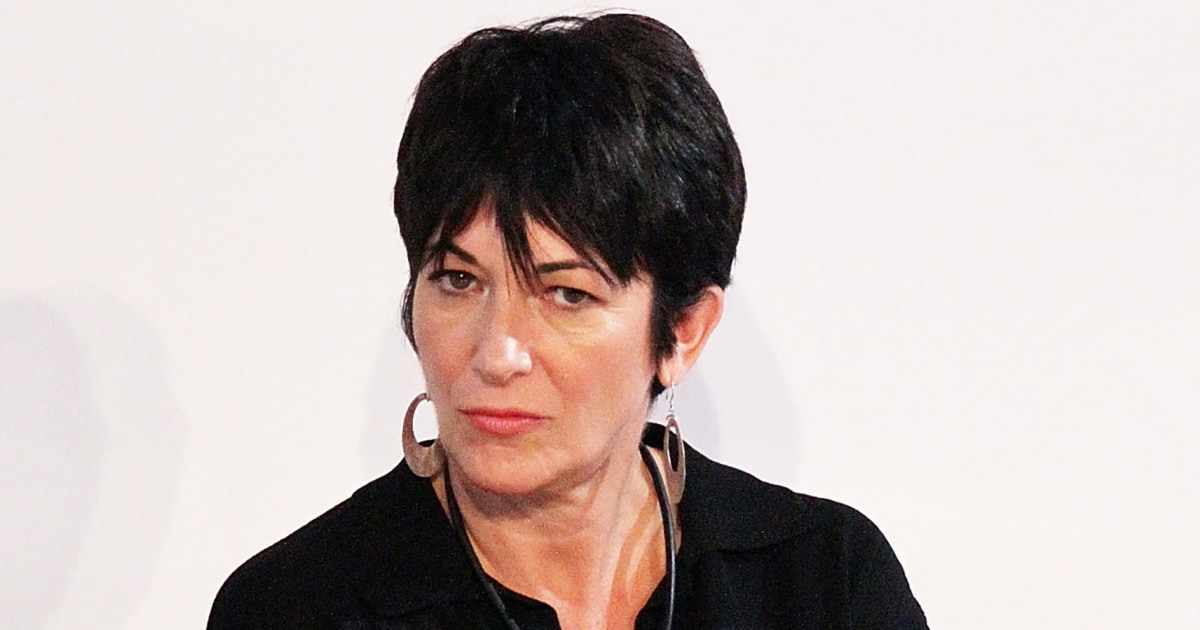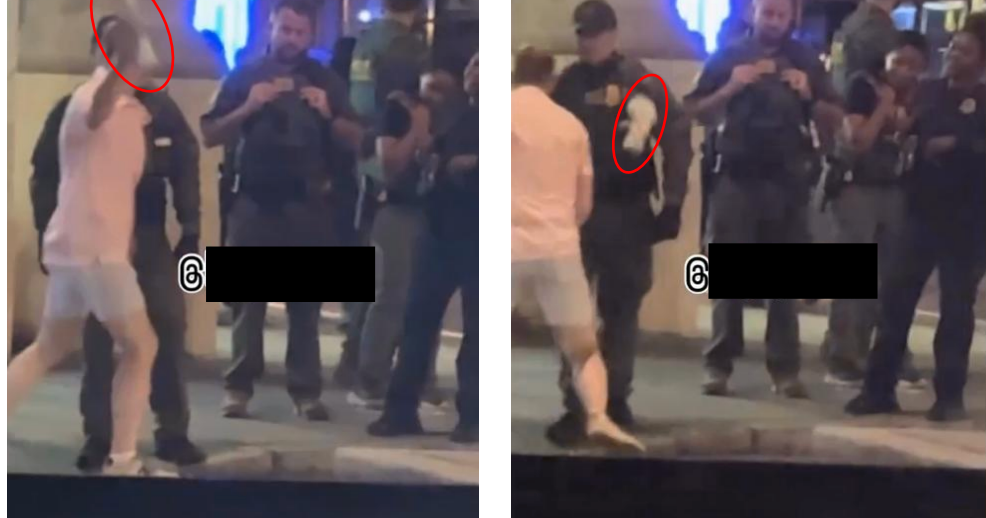Controversy Surrounding Fed Governor Lisa Cook

Introduction
The recent news of the Justice Department issuing subpoenas targeting Fed governor Lisa Cook has sparked controversy and raised questions about the political pressure she may face in her role. Cook, who was appointed by former President Trump, has been facing allegations of improper conduct and conflicts of interest. The Washington Post reported that Trump is actively trying to remove her from her position, further complicating the situation.
Unresolved Allegations
Cook has been accused of using her position on the Fed board to benefit her personal investments. She has also faced allegations of improperly disclosing confidential information. These allegations have yet to be resolved, creating a cloud of uncertainty around her role on the board. This could potentially hinder her ability to effectively carry out her duties as a Fed governor.
Political Pressure and Implications
In addition to the unresolved allegations, Cook is also facing political pressure to step down from her position. If a judge temporarily allows her to stay on the Fed board, she will have to navigate these challenges while fulfilling her responsibilities. This could potentially lead to conflicts and complications within the Fed, ultimately impacting the stability and effectiveness of the central bank.
About the People Mentioned
Lisa Cook
Lisa DeNell Cook (born 1964) is an American economist and a member of the Federal Reserve Board of Governors, having assumed office in May 2022 and reappointed in September 2023 for a term ending in 2038. She is notable as the first African American woman to serve on the Federal Reserve Board[1][2][6][8]. Cook holds a BA in Physics and Philosophy from Spelman College, where she was the first Marshall Scholar, and earned a second BA in Philosophy, Politics, and Economics from Oxford University. She completed her Ph.D. in Economics at the University of California, Berkeley, specializing in macroeconomics and international economics[2][3][6]. Her academic career includes faculty positions at Harvard University's Kennedy School of Government (1997–2002), where she was deputy director of Africa Research at the Center for International Development, and Michigan State University, where she has been a professor of economics and international relations since 2005 and gained tenure in 2013[1][2][3][6]. She was also a National Fellow at Stanford University's Hoover Institution (2002–2005). Cook has held significant advisory roles, including senior economist on the Obama Administration’s Council of Economic Advisers (2011–2012) and senior advisor on finance and development at the U.S. Treasury Department (2000–2001). She advised the Nigerian government on banking reforms and Rwanda on economic development[1][2][6]. Her research spans international economics, economic growth, innovation, financial markets, and the economic history of African Americans, notably linking racial violence during Jim Crow to suppressed patent activity. She also leads efforts to promote diversity in economics, directing the American Economic Association’s Summer Program for underrepresented minority students and serving on its Executive Committee[1][5][6]. In 2020, Cook contributed to the Biden presidential transition team’s review of financial regulatory agencies. She has also served on the board of directors of the Federal Reserve Bank of Chicago and the Federal Home Loan Bank of Indianapolis[1][5]. Cook is recognized for her scholarship, public service, and advocacy for inclusion in economics, and has been honored as a leading Black economist by Fortune magazine[5].
Donald Trump
Donald John Trump, born June 14, 1946, in Queens, New York, is an American businessman, media personality, and politician. He graduated from the University of Pennsylvania’s Wharton School in 1968 with a degree in economics. In 1971, he took over his family’s real estate business, renaming it the Trump Organization, through which he expanded into building and managing skyscrapers, hotels, casinos, and golf courses. Trump gained widespread fame as the host of the reality TV show *The Apprentice* from 2004 to 2015, which helped establish his public persona as a successful entrepreneur. Trump entered politics as a Republican and was elected the 45th president of the United States, serving from 2017 to 2021. His presidency was marked by significant policy actions including tax cuts, deregulation, the appointment of three Supreme Court justices, renegotiation of trade agreements (notably replacing NAFTA with the USMCA), and a focus on immigration control including border wall expansion. He withdrew the U.S. from international agreements such as the Paris Climate Accord and the Iran nuclear deal, and engaged in a trade war with China. His administration’s response to the COVID-19 pandemic was criticized for downplaying the virus’s severity. Trump was impeached twice by the House of Representatives—first in 2019 for abuse of power and obstruction, and again in 2021 for incitement of insurrection—but was acquitted by the Senate both times. After losing the 2020 election to Joe Biden, Trump challenged the results, culminating in the January 6, 2021, Capitol riot. He remains a central figure in American politics, having won the 2024 presidential election and returned as the 47th president in 2025, continuing to promote policies aimed at economic growth, border security, and military strength[1][2][3][4].
About the Organizations Mentioned
Justice Department
The United States Department of Justice (DOJ) is the principal federal agency responsible for enforcing federal laws, ensuring public safety, and protecting civil rights. Headquartered in Washington, D.C., the DOJ operates under the leadership of the Attorney General, who serves as a key member of the President’s Cabinet. As of 2025, Pam Bondi holds this position, having taken office in February and quickly shaping the department’s priorities. Established in 1870 during President Ulysses S. Grant’s administration, the DOJ’s roots trace back to the creation of the Attorney General’s office in 1789. Over the years, it has grown into a vast organization with more than 115,000 employees and over 40 component agencies, including the Federal Bureau of Investigation (FBI), Drug Enforcement Administration (DEA), and U.S. Marshals Service. The DOJ also houses specialized divisions for criminal, civil, antitrust, tax, civil rights, and national security matters, and oversees 94 U.S. Attorney offices nationwide. The DOJ’s mission centers on upholding the rule of law, safeguarding national security, and defending civil liberties. In 2025, the department has shifted its enforcement focus, prioritizing areas such as healthcare fraud, customs and tariff evasion, and corporate misconduct, especially involving foreign adversaries and financial gatekeepers. Recent policy changes have emphasized efficiency in investigations and reduced reliance on corporate compliance monitors, reflecting a broader effort to minimize regulatory burdens on businesses. Notably, the DOJ has also been tasked with reviewing past government conduct to address concerns about the “weaponization” of federal agencies, ensuring accountability and restoring public trust. For business and technology leaders, the DOJ’s evolving priorities—particularly in areas like cybersecurity, antitrust, and international trade—have significant implications for compliance, risk management, and corporate governance.
Fed
The **Federal Reserve System (Fed)** is the central bank of the United States, created by Congress in 1913 to provide a safer, more flexible, and stable monetary and financial system[1][2]. It consists of a Board of Governors in Washington, D.C., and 12 regional Reserve Banks located across the country, each serving distinct districts, collectively overseeing national monetary policy, financial supervision, and payment services[1]. The Fed’s core responsibilities include **conducting monetary policy**, **regulating and supervising banks**, and **maintaining an effective payments system**[1][3]. Its most visible function is managing monetary policy to influence money supply and credit with the goals of **price stability** and **maximum sustainable employment**, a dual mandate established by legislation in the 1970s[3]. To achieve this, the Federal Open Market Committee (FOMC) targets the federal funds rate, guiding interest rates and liquidity through tools like open market operations and reserve requirements[3]. Historically, the Fed was established after two previous central banks failed in the 19th century, responding to early 20th-century financial turbulence with a hybrid federal-regional system designed to balance centralized control and local insight[2]. The Federal Reserve’s decentralized structure allows it to closely monitor economic conditions nationwide and respond to regional challenges[2]. Key achievements include successfully navigating multiple financial crises by ensuring liquidity and financial stability, and continuously evolving its monetary policy framework. The Fed conducts a comprehensive review of its monetary strategy every five years, with the latest in 2025 incorporating public feedback and academic research to refine its approach to stabilizing the economy[4][7][9]. The 2025 update reaffirmed commitment to its dual mandate, emphasizing transparency and adaptability[5]. Currently, the Fed is managing the transition from pandemic-era monetary expansions by shrinking its balance sheet to maintain adequate liquidity while continuing to influence interest rates effectively within an ample reserves framework[6]. Its independence and nonpartisa

















